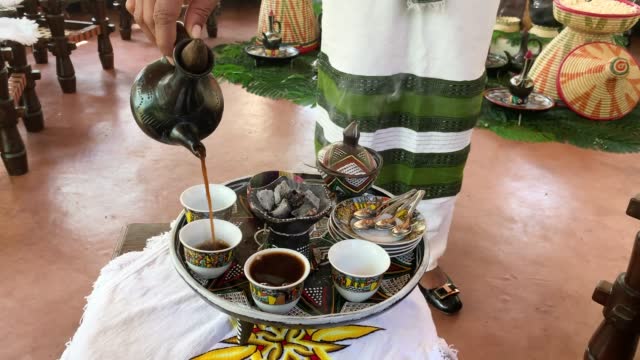Ethiopia, which is often referred to as the cradle of coffee and world’s oldest coffee country. The country has a long history of manufacturing distinctive and flavorful coffee. Ethiopia’s coffee history, culture and customs are fascinating to investigate.
Legendary Origins: A goat herder by the name of Kaldi is said to have discovered coffee in Ethiopia in the ninth century. He discovered that after consuming the berries from a particular tree, his goats exhibited extraordinary levels of vitality. He experimented with the berries out of curiosity and experienced a similar energy increase, leading to the discovery of coffee.
The Coffee Plant: The Coffee Plant The coffee plant is native to the highlands of Ethiopia and is formally known as Coffea arabica. It is ideal for coffee cultivation because it can be found at altitudes between 1,200 and 2,100 meters.
Cultural Significance: Cultural Significance The history of Ethiopian coffee’s cultural significance is extensive. It is essential to Ethiopian social gatherings and rituals. The coffee ceremony, or “Bunna,” is an integral part of Ethiopian culture. Green coffee beans are roasted, pulverized, and steeped in a special vessel known as a “jebena.” The ceremony symbolizes goodwill and hospitality.
Coffee Varieties: Ethiopian coffee is available in numerous varieties, each with a distinct flavor profile. Ethiopia’s most renowned coffee-producing regions are Sidamo, Yirgacheffe, Harrar, and Guji. The flavors and qualities of coffee differ by region, ranging from floral and fragrant to earthy and spicy.
Traditional Farming Methods: Using traditional agricultural techniques, many Ethiopian coffee producers continue to hand-pick their coffee cherries and sun-dry them on raised beds. These techniques serve to produce coffee from Ethiopia that has distinct flavors and high quality.
Economic Importance: Coffee plays a vital function in Ethiopia’s economy. It is a significant source of income for millions of Ethiopians and one of the country’s most important exports. Farmers, laborers, exporters, and coffee shop proprietors comprise a significant portion of the population that may find employment in the coffee sector.
Conservation Efforts: Ethiopia is committed to preserving both its coffee culture and its biodiversity. Several coffee-producing regions are included in the nation’s biosphere reserves and protected areas. To protect the environment and the future of Ethiopian coffee, initiatives are implemented to promote sustainable cultivation practices.
Global Influence: Ethiopian coffee has had a considerable impact on the global coffee industry. The distinctive flavor characteristics of Ethiopian coffee beans have inspired coffee enthusiasts from all over the globe. Ethiopian coffee is favored by specialty coffee roasters and cafés due to its unique flavor and high quality.
Challenges: Despite its long history, the Ethiopian coffee industry faces challenges such as market volatility, insect infestations and climate change. In an effort to ensure the sustainability of Ethiopian coffee production, organizations and initiatives are addressing these issues.
It is possible to immerse oneself in Ethiopia’s lively culture and customs while learning about the rich history of the world’s first country to produce coffee. Ethiopia’s coffee history offers a fun and educational journey, whether you’re a coffee enthusiast or a visitor looking for a distinctive cultural experience.

